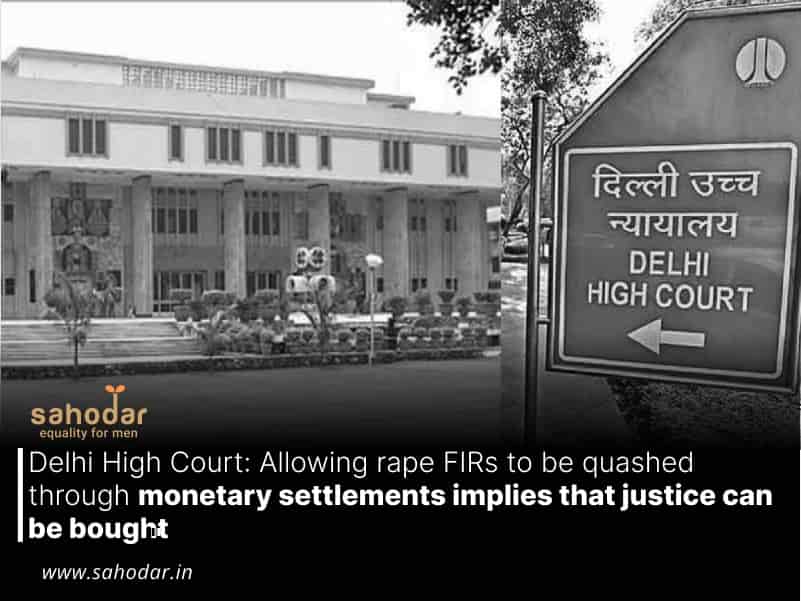The High Court refused to quash a case registered under Section 376 IPC even as the victim and the accused reached a settlement of ₹1.5 lakh.
The Delhi High Court recently stated that cases involving allegations of sexual violence cannot be dismissed based on financial settlements, as this would suggest that justice is purchasable [Rakesh Yadav & Ors v. State of NCT of Delhi & Anr].
Justice Swarana Kanta Sharma noted that the FIR in question underscores matters of self-respect, life and death for the prosecutrix and her child, and includes her claims that she has evidence of the threats and other allegations.
“…this Court is of the opinion that criminal cases involving allegations of sexual violence cannot be quashed on the basis of monetary payments, as doing so would imply that justice is for sale,” the Court said.
The High Court made this observation while refusing to quash an FIR filed under Section 376 (rape) of the Indian Penal Code (IPC). It was alleged that the woman had been sexually assaulted by a man four times after they met on social media.
The court also noted that the accused had falsely presented himself as divorced and had engaged in sexual violence with the woman under the pretense of marriage.
Subsequently, the two parties agreed to settle the case for ₹12 lakh, but considering the accused’s financial condition, the amount was reduced to ₹1.5 lakh.
After reviewing the case, the Court stated that an FIR in such a serious matter cannot be quashed.
“This Court is of the opinion that justice in a criminal trial, particularly in a case such as the present one, serves not only as a serious example and deterrent to the accused but also as a lesson to the community as a whole. Neither the accused nor the complainant can be allowed to manipulate the criminal justice system or misuse State and judicial resources to serve their own ends. Therefore, even if the parties have reached a compromise, they cannot demand the quashing of an FIR as a matter of right.”
Justice Sharma emphasized that the trial court must adjudicate the case based on its merits and carefully examine the facts considering natural justice for both the complainant and the accused. This should be done with an awareness of the broader implications for the community and the criminal justice system.

